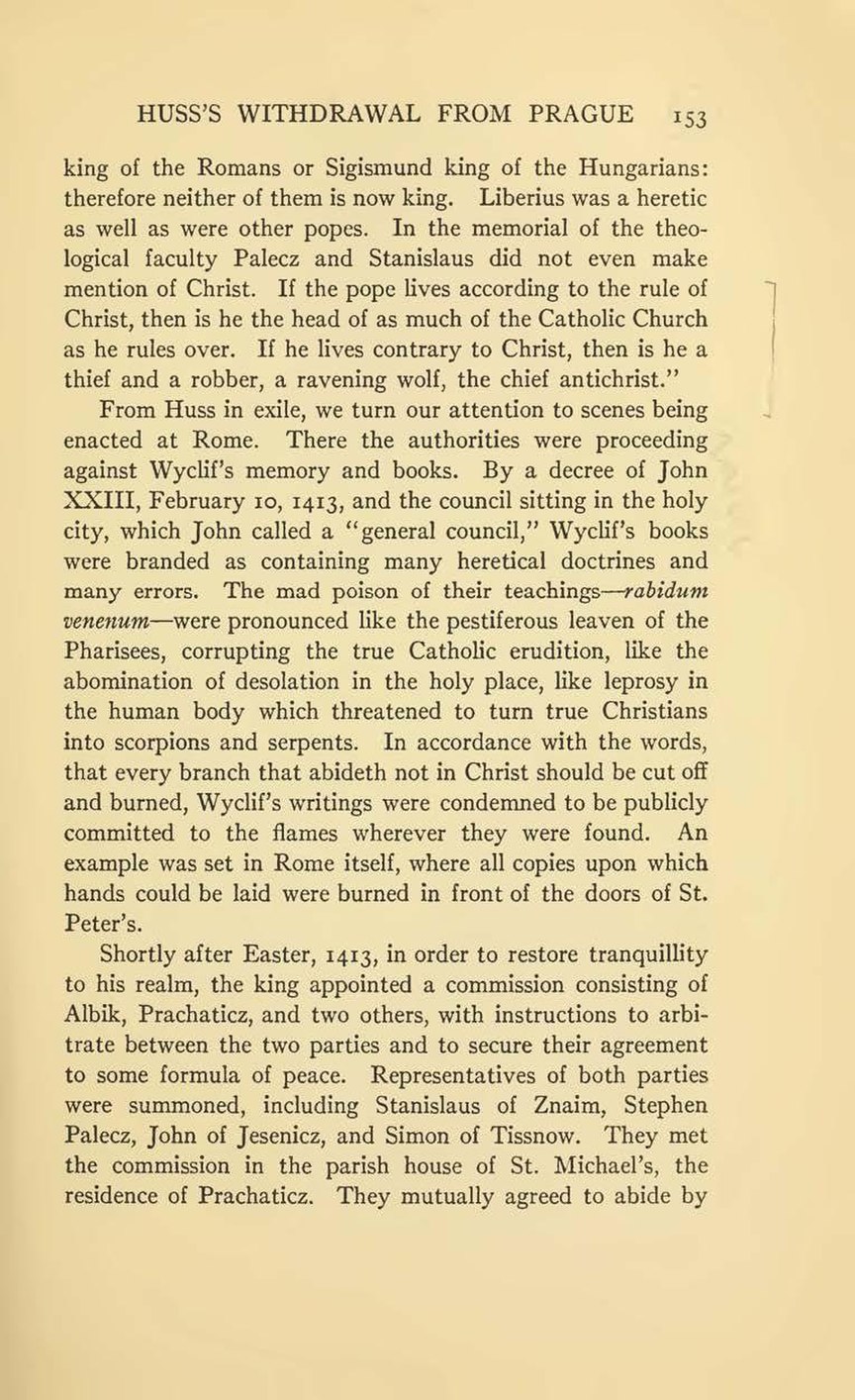king of the Romans or Sigismund king of the Hungarians: therefore neither of them is now king. Liberius was a heretic as well as were other popes. In the memorial of the theological faculty Palecz and Stanislaus did not even make mention of Christ. If the pope lives according to the rule of Christ, then is he the head of as much of the Catholic Church as he rules over. If he lives contrary to Christ, then is he a thief and a robber, a ravening wolf, the chief antichrist.”
From Huss in exile, we turn our attention to scenes being enacted at Rome. There the authorities were proceeding against Wyclif’s memory and books. By a decree of John XXIII, February 10, 1413, and the council sitting in the holy city, which John called a “general council,” Wyclif’s books were branded as containing many heretical doctrines and many errors. The mad poison of their teachings—rabidum venenum—were pronounced like the pestiferous leaven of the Pharisees, corrupting the true Catholic erudition, like the abomination of desolation in the holy place, like leprosy in the human body which threatened to turn true Christians into scorpions and serpents. In accordance with the words, that every branch that abideth not in Christ should be cut off and burned. Wyclif’s writings were condemned to be publicly committed to the flames wherever they were found. An example was set in Rome itself, where all copies upon which hands could be laid were burned in front of the doors of St. Peter’s.
Shortly after Easter, 1413, in order to restore tranquillity to his realm, the king appointed a commission consisting of Albik. Prachaticz, and two others, with instructions to arbitrate between the two parties and to secure their agreement to some formula of peace. Representatives of both parties were summoned, including Stanislaus of Znaim, Stephen Palecz, John of Jesenicz, and Simon of Tissnow. They met the commission in the parish house of St. Michael’s, the residence of Prachaticz. They mutually agreed to abide by
